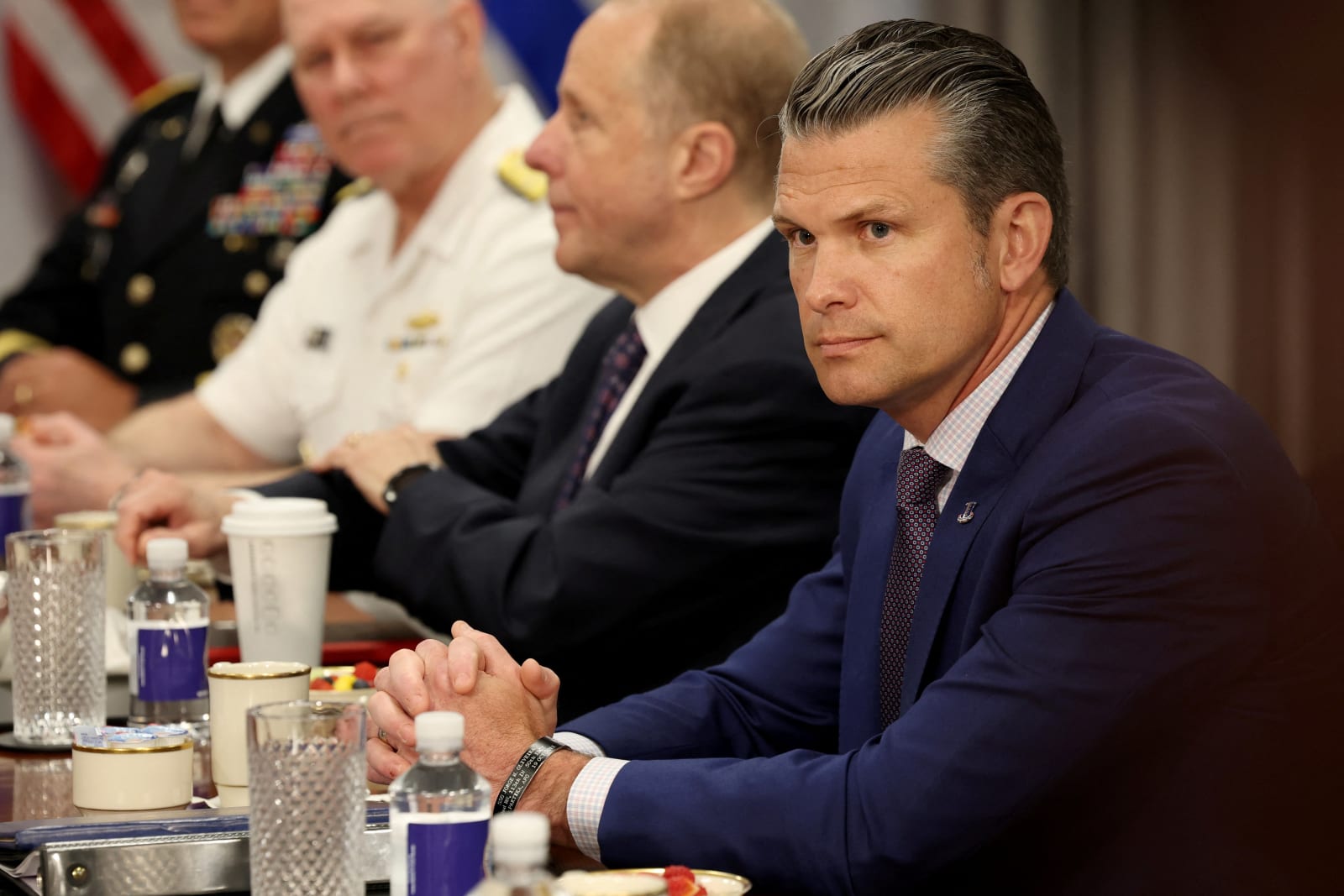Tensions Mount in the Pentagon Over Hegseth’s Actions
The confirmation of Pete Hegseth as the 29th Secretary of Defence has not silenced the rising concerns surrounding his handling of military affairs. Despite his position, influential senators within the Republican Party are increasingly hesitant to engage in discussions about the embattled military leader, particularly following recent scandals that have emerged from the Pentagon.
A Controversial Move
In March, reactions among congressional Republicans were mixed when Hegseth added the editor-in-chief of The Atlantic to a private group chat on Signal, where sensitive military strategies were reportedly discussed. This incident, along with other missteps, has led to growing discontent within the party. Notably, Hegseth’s decision to block military aid to Ukraine without informing President Trump has raised eyebrows among his GOP colleagues.
When questioned about the situation regarding Ukraine funding, Senator Roger Wicker of Mississippi evaded the inquiry, stating, “I just wouldn’t be able to comment,” as he swiftly exited a Capitol elevator. His reluctance to address the issue was mirrored by Senator Jim Risch of Idaho, who also avoided mentioning Hegseth’s name during a similar exchange.
A Shift in Perspective
The dynamics among the Republican senators appear to be shifting, particularly in the wake of President Trump’s recent statements. Observers have noted a distinct change in tone, especially as Trump publicly condemned Russian President Vladimir Putin while simultaneously approving military aid for Ukraine, despite opposition from some factions within the party.
Historically, Senator Ron Johnson of Wisconsin has been a vocal critic of Ukraine funding. However, he recently indicated a change in his stance, suggesting a recognition of the realities posed by geopolitical aggressors like Putin. “It’s kind of recognising reality,” Johnson stated, distancing himself from past resistance.
Mixed Reactions Among GOP Senators
Senator Josh Hawley of Missouri, known for his America First populism, also expressed a nuanced view on Hegseth’s actions. While he acknowledged that Hegseth serves at the President’s discretion, he seemed ambivalent about the Secretary’s recent controversies, asserting that he does not engage in “cabinet drama.” When pressed about his feelings on Hegseth, Hawley stated, “He seems to be doing a good job. I don’t know.”
The sentiment of detachment from the ongoing issues has left many questioning the overall stability and effectiveness of Hegseth’s leadership.
Concerns from the Democratic Side
On the other side of the aisle, Democratic senators are increasingly alarmed by the national security implications of Hegseth’s decisions. Senator Dick Durbin, the Senate Minority Whip, warned that the President is quick to dismiss those who fail to meet expectations. “Doesn’t take much to get this president to decide that you’re finished,” he cautioned.
Senator Ben Ray Luján of New Mexico, who opposed Hegseth’s confirmation, expressed frustration over what he perceives as a lack of accountability. He stated, “It appears that this Secretary just wants to be in charge, [to] be the president himself.” Luján emphasised the need for Hegseth to work collaboratively with other key figures, including Secretary of State Marco Rubio.
A Call for Accountability
The reluctance of prominent Republican senators like Wicker and Risch to address the issues surrounding Hegseth has raised concerns about oversight and national security. Luján articulated these worries, asserting that “turning a blind eye” to the situation is detrimental. He called for thorough briefings and hearings to ensure accountability and clarity regarding Hegseth’s actions.
The prevailing atmosphere in the Senate suggests that the fallout from Hegseth’s controversial decisions may not only affect his standing but could also reverberate through the Republican Party as it grapples with unity and direction in the face of an evolving geopolitical landscape.
Conclusion
As speculation continues regarding President Trump’s response to Hegseth’s actions, the political environment remains fraught with tension. The implications of Hegseth’s decisions extend beyond mere cabinet drama, impacting the United States’ approach to foreign policy and its commitment to allies in challenging times. With senators from both parties calling for clarity and responsibility, the coming weeks may prove pivotal for Hegseth and the broader military leadership in Washington.

